Best Medical Assistant Programs – 2024
Medical assisting is one of the fastest-growing professions in the healthcare industry today, and as a result, there are many people searching for the best medical assistant programs in the nation in terms of quality education and value. We have evaluated hundreds of programs across the country to bring you the following list of 30 best medical assistant schools. This will make it easier for you to choose a school that best suits your individual needs in terms of location, budget, and quality.
How Many Medical Assisting Schools Did we Evaluate for our Rankings?
We evaluated a total of 1241 Schools currently offering medical assisting education in the nation.
How We Ranked the Best Medical Assistant Schools?
Minimum Entry Requirements
• The school must offer either a certificate, diploma or associate degree program in medical assisting accredited by CAAHEP or ABHES.
• The school must submit an annual report to the National Center for Education Statistics.
Ranking Factors
| Factor | Weightage |
| Academic Quality Admissions Rate – 40% Graduation Rate – 35% Student to Faculty Ratio – 25% | 60% |
| Average Net Price | 20% |
| MedicalAssistantAdvice.com Rating (The schools were rated by our editorial team, taking into consideration student ratings & reviews from popular websites such as niche.com, facebook.com, gradreport.com and ratemyprofessors.com.) | 20% |
Why Each of the Above Factor was Considered?
Academic Quality: Of all the factors we used to rank the best medical assistant schools, academic quality is the most heavily weighted. To come up with the academic quality of a college we considered its admissions rate, graduation rate, and the student to faculty ratio.
Admissions Rate – refers to the percentage of students who choose to enroll in a program after having been accepted. A high percentage indicates that the school is more popular over others.
Graduation Rate – refers to the total percentage of students who graduate from the program within 150% of the published time. For instance, within three years of a two-year program. This is an important indicator on the likeliness of a student completing his or her studies with a degree.
Student to Faculty Ratio – refers to the number of students to teachers/faculty for the program. The lower this number the better, as this means students are more likely to receive one on one training and perform better as a result.
Average Net Price: Price is also an important factor when ranking the best medical assistant programs in the nation, and your goal should be balancing a high-quality education with a price you can afford. We considered the overall price of the MA programs we reviewed for these reasons.
MedicalAssistantAdvice.com Rating: Finally, we looked at student ratings and reviews that was gathered from popular review sites such as Niche.com, Facebook, GradReport.com, and RateMyProfessors.com. By combining this data, we were able to determine students’ overall impressions of each MA program on the list.
Where was the data collected from?
• The complete list of accredited medical assistant programs was gathered from CAAHEP and ABHES.
• Admission rate, graduation rate, and average net price was gathered from the Integrated Postsecondary Education Data System (IPEDS) and College Navigator, both of which are hosted by the National Center for Education Statistics.
• Student ratings and reviews were collected from websites such as niche.com, facebook.com, gradreport.com and ratemyprofessors.com.
What are the 30 Best CAAHEP or ABHES Accredited Medical Assistant Programs for the Year 2024?
1) Century College Ranking Score: 99.79 |
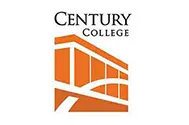 Location: White Bear Lake, MINNESOTA Accreditation: CAAHEP Program Type: Diploma (2 Years) Century College in the Minneapolis suburb of White Bear Lake is one of the largest community colleges in Minnesota. The school’s excellent medical assistant program is one of several health care-related training options: Century College also offers certifications and degrees for aspiring emergency medical technicians, mental health behavioral aides, nurses, nursing assistants, and medical billers and coders. The two-year, 51 credit-hour curriculum has a fall class with daytime and online cohorts, and a spring class with daytime, evening and online cohorts. The application deadline for fall admissions is June 1 and for spring admissions is August 31. Admission into this medical assisting school is highly competitive, and students must maintain an average grade of C or higher to earn their diplomas. Students must also perform 25 hours of service learning during which they will work with elderly patients. Following the completion of the classroom component of training, students are assigned an unpaid 300-hour externship where they will assist a physician practicing in the Twin Cities area. |
2) Carrington College Ranking Score: 99.69 |
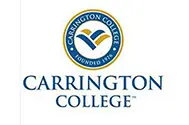 Location: Mesa, Phoenix North & Tucson – ARIZONA | Citrus Heights, Pleasant Hill, Sacramento, San Jose, San Leandro & Stockton – CALIFORNIA | Boise, IDAHO | Portland, OREGON | Spokane, WASHINGTON Accreditation: ABHES & CAAHEP Program Type: Certificate (36 Weeks) & Associate (66 Weeks) Carrington College is a network of for-profit schools that’s headquartered in Sacramento, California, but operates in 20 other locations throughout the U.S. as well. The school prepares students for careers as ancillary personnel in the medical, dental, veterinary and criminal justice fields. You can attain a medical assistant Certificate of Achievement in 36 weeks at Carrington College, but if you want to earn an associate degree, you will have to complete the entire 66-week program. The curriculum focuses on clinical skills such as phlebotomy, specimen collection, basic laboratory testing and keeping electronic health records as well the office skills, you will need to function effectively as an MA. The final segment of your training will involve a 180-hour externship at a physician’s office where you will practice the skills you’ve learned under the supervision of a Carrington College faculty member. |
3) Ivy Tech Community College Ranking Score: 99.15 |
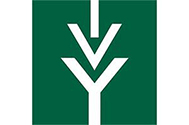 Location: Anderson, Columbus, Evansville, Fort Wayne, Indianapolis, Kokomo, Lafayette, Lawrenceburg, Madison, Marion, Michigan City, Muncie, Richmond, Sellersburg, South Bend, Terre Haute, INDIANA Accreditation: CAAHEP Program Type: Certificate (12 Months) & Associate (24 Months) Ivy Tech Community College is the largest community college system in the U.S. with more than 40 locations across all parts of Indiana. Despite the size of the population it serves, however, the college strives to keep class sizes small so that students can benefit from personalized interactions with faculty members. The average class size throughout the community college system is 22. Like many medical assistant schools, Ivy Tech Community College offers two MA tracks: a three-semester, 33 credit-hour curriculum that leads to a technical certificate and a four-semester, 60 credit-hour course that leads to an Associate of Applied Science degree. Classes focus on the practical skills necessary for success in this field, and students have access to a computer lab, a phlebotomy lab, a laboratory skills lab and a clinical skills lab where they learn the basics of patient care, venipuncture, electrocardiogram administration, medical coding, electronic charting, how to take vital signs and how to give injections. |
4) Davenport University Ranking Score: 98.23 |
 Location: Grand Rapids & Lansing – MICHIGAN Accreditation: CAAHEP Program Type: AAS – Medical Assisting with Phlebotomy Davenport University prides itself on its ability to integrate new information, technology and trends into its curriculum. The University’s main campus is in Grand Rapids, Michigan, but it maintains satellite campuses in Holland, Lansing, Midlands, Warren, Flint, Kalamazoo, Traverse City and Detroit. The University’s 61 credit-hour medical assistant associate degree program is designed to give students a foundation in patient care, basic laboratory skills and medical office procedures. Students may also choose to pursue an additional six credits of coursework focusing upon venipuncture techniques that will qualify them to sit for the Phlebotomy Technician Certification exam. The AA degree requires 180 hours of field experience while the phlebotomy subspecialty requires an additional 120 hours of clinical experience. Students must submit to a criminal background check and drug screening before they will be admitted into this major. |
5) Pasadena City College Ranking Score: 97.76 |
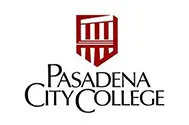 Location: Pasadena, CALIFORNIA Accreditation: CAAHEP Program Type: Certificate Pasadena College, the third-biggest community college system in the U.S., is consistently ranked as one of the best two-year, post-secondary schools in California. Its main campus is in downtown Pasadena, but its Health Sciences Division is located at its satellite Foothill College, which is nestled at the base of the San Gabriel Mountains. The Health Sciences Division prepares students for careers as emergency medical technicians, anesthesia technicians, dental assistants, vocational nurses and radiology techs as well as medical assistants. The College offers three MA programs: one in clinical medical assisting, one in medical office administration and one in medical office insurance billing. Applicants to the clinical medical assisting training course have top priority for admission. Upon acceptance, students will be required to undergo a background check and obtain an American Heart Association Basic Life Support for Health Care Providers card and a First Aid certificate. Once classroom courses are complete, clinical medical assistant students must complete a six-week, unpaid practicum to order to earn their Certificate of Achievement. |
6) ECPI University Ranking Score: 97.53 |
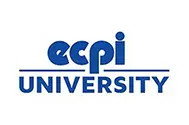 Location: Charlotte, Greensboro & Raleigh – NORTH CAROLINA | Columbia, Greenville & North Charleston – SOUTH CAROLINA | Manassas, Newport News, Richmond, Roanoke & Virginia Beach – VIRGINIA Accreditation: ABHES Program Type: Diploma (12 Months) & Associate (15 Months) ECPI University began its existence as a technical college specializing in computer science and programming but expanded to include health care-related offerings such as medical assisting and nursing as demand for those services increased. The University has 19 campuses scattered throughout Virginia, North Carolina, South Carolina, Texas and Florida. Accredited medical assistant programs are offered at ECPI University’s campuses in Charleston, Columbia and Greenville, South Carolina; Charlotte, Greensboro and Raleigh, North Carolina; Newport News, Richmond, Northern Virginia and Roanoke, Virginia; and San Antonio, Texas. Students pursuing the 12-month MA diploma option and students pursuing the 15-month MA associate degree follow the same MA-related curriculum, which includes a medical assisting externship. Aspiring associates supplement this curriculum with additional semester credit hours in arts, sciences and computer literacy. |
7) Pima Medical Institute Ranking Score: 97.01 |
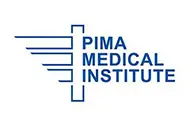 Location: Mesa, Phoenix & Tucson – ARIZONA |Chula Vista & San Marcos – CALIFORNIA | Aurora, Colorado Springs & Denver – COLORADO | Albuquerque & Albuquerque West – NEW MEXICO | Las Vegas, NEVADA | El Paso & Houston – TEXAS | Renton & Seattle – WASHINGTON Accreditation: ABHES Program Type: Certificate (9 Months) Pima Medical Institute is the largest for-profit training school for allied health professionals in the U.S. The institute operates 17 campuses in Arizona, California, Colorado, Montana, Nevada, New Mexico, Texas and Washington. The Institute provides certificate-, associate degree- and bachelor’s degree-level training for aspiring dental assistants, nursing assistants, pharmacy technicians, paramedics and surgery techs in addition to certificate-level training for aspiring MAs. You can complete a medical assistant certificate program through Pima Medical Institute in just nine months at campuses located in East Valley, Mesa, Tucson and Phoenix, Arizona; Chula Vista and San Marcos, California; Colorado Springs, Denver and Aurora, Colorado; Las Vegas, Nevada; Albuquerque and Rio Rancho, New Mexico; Houston and El Paso, Texas; and Renton and Seattle, Washington. Coursework includes basic patient skills as well introductions to medical office management and billing. Students get to hone the skills they’ve mastered through clinical externships in the offices of local physicians. |
8) Keiser University Ranking Score: 96.97 |
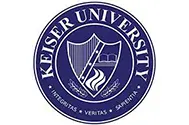 Location: Daytona Beach, FLORIDA Accreditation: CAAHEP Program Type: Associate “Community College Week” ranked Keiser University second in the nation among colleges offering associate degrees in the health sciences. The Florida-based system is headquartered in Fort Lauderdale but maintains 18 campuses throughout Florida. The school also has regionally accredited sites in international locations, including San Marcos – Nicaragua and Shanghai – China. The Associate of Science degree in Medical Assisting prepares students to function in an administrative capacity as well to perform patient care duties under the supervision of a physician. The University prioritizes small class sizes so that students can benefit from personalized interactions with instructors. The medical assistant course includes credit hours of science and medical procedure coursework as well as 24 credit hours of general education classes, and most students finish the program in two years. At the conclusion of their classroom work, all students complete a clinical externship. |
9) Renton Technical College Ranking Score: 91.50 |
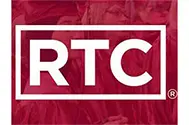 Location: Renton, WASHINGTON Accreditation: CAAHEP Program Type: Certificate & Associate Since World War II, Renton Technical College has been providing customized vocational training and services to businesses and industries headquartered in the Pacific Northwest. The College, which is located in a suburb near Seattle, places high in several rankings of the top community colleges. It’s administered by the Washington State Board for Community and Technical Colleges. Renton Technical College offers both a 75-credit medical assistant certificate degree program and a 95-credit medical assistant associate degree program. Twenty credits of additional general education classes are required for the latter. Classes begin in the fall and the winter. All incoming students must pass a nationwide criminal background check, be fluent in English and be evaluated by a primary health care provider on their ability to lift 50 pounds or more safely. |
10) Western Technical College Ranking Score: 96.64 |
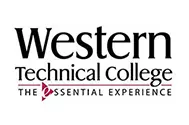 Location: La Crosse, WISCONSIN Accreditation: CAAHEP Program Type: Diploma (30 Weeks) Western Technical College is an open enrollment college, serving 11 Wisconsin counties. This means that so long as you meet the College’s residential requirements, you are guaranteed acceptance. Its main college is in La Crosse, but it also offers classes in Black River Falls, Independence, Mauston, Sparta, Tomah and Viroqua. As a student at Western Technical College, you can complete your MA training in as little as 30 weeks. When you complete your MA education, you will receive a technical diploma. Training focuses on laboratory and clinical procedures, and skills such as medical terminology and insurance billing that will help keep a physician’s practice running smoothly. Students can earn their MA certification without completing a clinical externship. |
11) Herzing University Ranking Score: 96.51 |
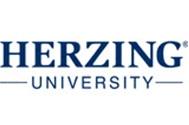 Location: Akron – OHIO | New Orleans – LOUISIANA Accreditation: ABHES & CAAHEP Program Type: Diploma in Medical Assisting Services (12 Months), Online & On-Campus Associate Degree in Medical Assisting Services (16-20 Months) & 100% Online Diploma in Medical Assisting (10 Months) When Herzing Institute was founded in 1965, it focused on computer training; but the school diversified over the years and changed its name to Herzing University in 2009. Headquartered in Menominee, Wisconsin, the University maintains 11 campuses in Wisconsin, Minnesota, Nebraska, Louisiana, Florida and Ohio. Three traditional medical assistant training tracks are offered through Herzing University: a 60-credit associate degree that typically takes between 16 and 20 months to complete and is offered 100% online or at the University’s Akron and New Orleans campuses; a 42-credit diploma in medical assisting services that typically takes 12 months to complete is offered at the University’s campus in Akron, Ohio; and a 34-credit fully online 10-month Diploma in Medical Assisting. At the conclusion of the course, students participate in an externship to familiarize them with the duties for which they will be responsible in a workplace environment. |
12) Chabot College Ranking Score: 96.13 |
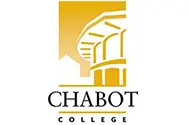 Location: Hayward, CALIFORNIA Accreditation: CAAHEP Program Type: Certificate (35 Weeks) Chabot College is located in Hayward, California. The College offers more than 100 associate degrees and certificates in Applied Technology and Business, Language Arts, Math and Sciences, Physical Education and Health, the College of the Arts, and Social Sciences. The College’s MA associate degree focuses on preparing graduates to perform the administrative and clinical duties they will be responsible for as professionals working in physicians’ offices. The 31-unit curriculum usually takes 35 weeks to finish. Classes begin every fall, and there are no special requirements beyond Alameda County residency. However, each class size is capped at 25, and once that number is reached, no further students will be admitted. Students participate in a clinical practicum at a local doctor’s office once their class work is completed. |
13) Clackamas Community College Ranking Score: 96.02 |
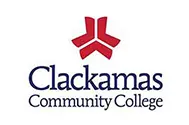 Location: Wilsonville, OREGON Accreditation: CAAHEP Program Type: Certificate (1 Year) With an enrollment of more than 38,000 students, Clackamas Community College is one of the largest community colleges in Oregon. The college primarily focuses on workforce development and career education at its Oregon City, Milwaukie and Wilsonville campuses. Health sciences education, including MA training, takes place at the community college’s New Harmony campus in Wilsonville. Aspiring medical assistants can earn a medical assistant certificate of completion from Clackamas in just one year. Applicants must complete a course in medical terminology with a grade of C or better before they can be admitted into the program. Applicants are also required to submit to drug screening and a criminal background check. Once academic coursework is complete, students will spend five weeks in an externship where they’ll have the opportunity to sharpen their clinical skills. Over the last five years, graduates of Clackamas Community College’s MA program have recorded a 100% pass rate on the CMA exam. |
14) Everett Community College Ranking Score: 96.00 |
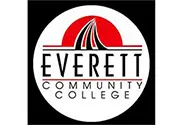 Location: Everett, WASHINGTON Accreditation: CAAHEP Program Type: Certificate Everett Community College primarily serves students throughout the Seattle, Washington metropolitan area. The College offers associate degrees in nearly 100 different majors and certifications completion in more than 30 technical and career fields. Approximately 80 percent of Everett Community College’s students stay in the area to pursue careers once they’ve finished their education. MA students can earn a Certificate in Medical Assisting (85 credits), an Associate in Technical Arts (90 credits) or an Associate in Applied Science-Transfer (105 credits). The associate degrees require general education classes in addition to specific MA-focused coursework. All MA students complete 160 clinical rotation hours once they have successfully completed the classroom curriculum. Clinical rotations are scheduled Monday through Friday, 8 hours per day, 40 hours per week, for approximately one month. |
15) Highline College Ranking Score: 95.75 |
 Location: Des Moines, WASHINGTON Accreditation: CAAHEP Program Type: Certificate & Associate When Highline College was founded in 1961, it was one of Washington State’s first community colleges. The College offers training for a number of ancillary health care professionals, including nurses, respiratory therapists and medical assistants. Central Washington University maintains a facility on Highline College’s campus in Des Moines, and this makes it possible for Highline students to take university-level classes. The College offers a Medical Assistant certificate, which can be completed in five quarters, and a Medical Assistant associate degree, which can be completed in two years. Completion of the MA certificate is a prerequisite for enrollment in the medical assistant associate degree program. Both these medical assisting education tracks require the completion of a single 180-hour clinical externship. |
16) Dakota County Technical College Ranking Score: 96.55 |
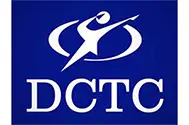 Location: Rosemount, MINNESOTA Accreditation: CAAHEP Program Type: Diploma & Associate Dakota County Technical College in Rosemount, Minnesota is famous for the educational opportunities it offers to students who are interested in nanoscience technology. The school partners closely with local industries in unique Customized Training programs that are often funded by local businesses. Dakota County Technical College offers both an MA certificate program and an MA associate degree. To be accepted into either track, applicants must demonstrate proficiency in both reading and arithmetic skills on the ACCUPLACER test. Students in both tracks will be required to complete a clinical externship and write a paper for a capstone class, but aspiring MAs pursuing the associate degree option will also be required to complete 18 general education credits. |
17) Daytona State College Ranking Score: 95.32 |
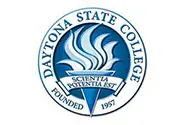 Location: Daytona Beach, FLORIDA Accreditation: CAAHEP Program Type: Certificate (36 Weeks) Founded in 1957, Daytona State College was one of the first colleges in Florida’s comprehensive junior college system. The college partners with local school districts on courses that allow high school juniors and seniors to earn college credits via dual enrollment. The College transitioned to a four-year school in 2006, and in addition to associate degrees, it now offers workforce baccalaureate degrees such as bachelor’s degrees in nursing. The 43-credit-hour MA program takes approximately 36 weeks to complete. The application process begins in July, and applicants are accepted on a first-come basis until the class quota is met. Academic coursework is scheduled throughout the fall and spring semesters Monday through Thursday, 8 a.m. to 4 p.m. All students are required to complete a 6-week clinical externship in a local physician’s office following the conclusion of the classroom portion of their training. |
18) Fortis Institute Ranking Score: 95.13 |
 Location: Dothan, Foley, Mobile & Montgomery – ALABAMA | Pensacola & Port St. Lucie – FLORIDA | Smyrna, GEORGIA | Indianapolis, INDIANA | Baton Rouge, LOUISIANA | Towson, MARYLAND | Lawrenceville & Wayne – NEW JERSEY | Cincinnati & Westerville – OHIO | Columbia, SOUTH CAROLINA | Nashville, TENNESSEE | Dallas, TEXAS Accreditation: ABHES Program Type: Diploma & Associate Fortis Institute is a for-profit technical training school with 42 campuses in Alabama, Arizona, Florida, Georgia, Indiana, Louisiana, Maryland, New Jersey, Ohio, Pennsylvania, South Carolina, Tennessee, Texas, Utah and Virginia. The Institute’s focus is on career training, and it offers a number of certificate and degree tracks for ancillary health care professionals. The Institute offers diploma and associate medical assisting programs at more than 30 locations. Admissions requirements differ by campus, but in general, you must be a high school graduate. Students learn the basics of medical office administration and customer service skills as well as patient management essentials. |
19) Fox Valley Technical College Ranking Score: 93.76 |
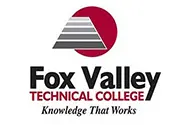 Location: Appleton, Waupaca & Oshkosh – WISCONSIN Accreditation: CAAHEP Program Type: Diploma (1 Year) Fox Valley Technical College focuses on occupational training. The school offers more than 200 associate degree, technical diploma and certificate programs at its campuses in Appleton and Oshkosh, Wisconsin and at its regional sites in Chilton, Clintonville, Waupaca and Wautoma. MA applicants must pass an assessment before they will be admitted into Fox Valley Technical College’s one-year medical assisting diploma program. Core courses are offered at the Appleton and Waupaca locations in the fall and at the Appleton and Oshkosh locations in the spring. Students must participate in a clinical externship in order to complete diploma requirements. Before a student can be enrolled in a clinical externship, he or she will have to pass a criminal background check. |
20) Ross College Ranking Score: 92.75 |
 Location: Bettendorf, IOWA | Bowling Green, Erlanger, Hopkinsville & Owensboro – KENTUCKY | Canton, Cincinnati, Dayton, Elyria, Niles, Ontario & Sylvania – OHIO | Huntsville, ALABAMA | Evansville, Fort Wayne, Granger, Kokomo, Lafayette & Muncie – INDIANA | Ann Arbor, Brighton, Canton, Davison, Flint, Grand Rapids North, Kalamazoo, Kentwood, Lansing, Madison Heights, Midland, New Baltimore, Port Huron, Portage, Roosevelt Park, Saginaw & Taylor – MICHIGAN | Johnson City & Knoxville – TENNESSEE | Charleston & Morgantown – WEST VIRGINIA Accreditation: ABHES Program Type: Certificate, Diploma & Associate Ross College is an online career-training institute associated with Ross Medical Education Center. Ross Medical Education Center is a for-profit system of schools with 40 locations throughout seven states. The College offers certificate, diploma and associate MA training at sites in Alabama, Indiana, Iowa, Kentucky, Michigan, Ohio, Tennessee, and West Virginia. The medical assisting program curriculum has different tracks for day students and evening students; day students should be able to complete the curriculum in 30 weeks while afternoon and evening students will require 36 weeks. Learning takes place through a series of modules that combine hands-on practice and informational topics. Students in all three academic tracks will be required to complete a clinical externship. |
21) Mitchell Technical Institute Ranking Score: 91.70 |
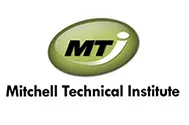 Location: Mitchell, SOUTH DAKOTA Accreditation: CAAHEP Program Type: Associate Mitchell Technical Institute, which is located in Mitchell, South Dakota, is widely hailed as one of the best community colleges in the nation. The school offers nearly 40 on-campus and online technical training programs as well as a number of regionally unique training modules. The Institute provides aspiring MAs with two learning experiences: a medical office assistant certificate and a medical office assistant associate degree. Students will learn basic nursing, laboratory and office management skills using classroom instruction and experiential, hands-on learning in state-of-the-art simulation labs. Students complete their medical assistant education by participating in an externship with a physician practicing in the local area. |
22) Bergen Community College Ranking Score: 91.61 |
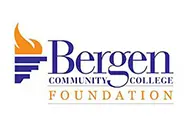 Location: Paramus, NEW JERSEY Accreditation: CAAHEP Program Type: Certificate (Medical Office Assistant); Associate (Medical Office Administrative Assistant) Bergen Community College has three New Jersey campuses: one in Paramus, one in Hackensack, and one in Lyndhurst. In addition to basic education programs aimed at aspiring ancillary health care providers, the College has a well-known theater program. Students can earn either an MA certificate or an associate degree. The certificate focuses on office administration skills and does not involve a clinical externship; the degree track requires general education classes as well as courses that focus on teaching specific patient-related skills. |
23) American Career College Ranking Score: 91.05 |
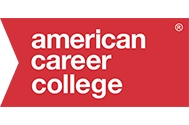 Location: Los Angeles, Orange County & Ontario – CALIFORNIA Accreditation: ABHES Program Type: Diploma (9 Months) American Career College is a for-profit system of educational centers that specializes in preparing students for careers as ancillary health care professionals. The College markets its services primarily to students in Southern California with campuses in Los Angeles, Orange County, and Ontario. The school offers an MA diploma program that aspiring medical assistants can complete in as little as nine months. The medical assistant curriculum is offered at the Los Angeles, Ontario and Orange County campuses. Education aims at helping students become proficient in administrative office procedures as well as in basic patient management skills. |
24) Coyne College Ranking Score: 90.43 |
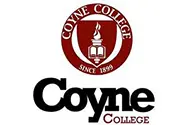 Location: Chicago, ILLINOIS Accreditation: ABHES Program Type: Diploma (10 Months) Chicago-based Coyne College specializes in preparing students for a variety of careers in the construction and allied health care professions. The for-profit school first opened its doors in 1899. The College offers students an opportunity to earn a medical assisting diploma in 10 months. Students are taught a blend of clerical and clinical skills. Six weeks of intensive coursework that focuses on electronic health record management helps graduates become experts in this niche. At the conclusion of coursework, all students must complete an externship at a physician’s office, medical billing office or hospital in the area. |
25) Berkeley College Ranking Score: 89.39 |
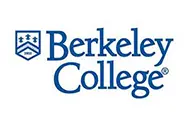 Location: Woodland Park, NEW JERSEY Accreditation: CAAHEP Program Type: Certification & Associate Berkeley College is a for-profit system of schools that offers both liberal arts education and career-focused training at campuses in New York and New Jersey. The College offers diploma certificates as well as associate, bachelor’s and graduate-level degrees. The Associate degree in Applied Science with an emphasis in medical assisting is an extension of the College’s career-track, certificate-level programming. Both programs teach patient care procedures and office administration skills, but the associate degree curriculum also includes more background science and general education classes. All students must complete a faculty-monitored practicum at the conclusion of their academic coursework. |
26) University of Alaska – Anchorage Ranking Score: 89.00 |
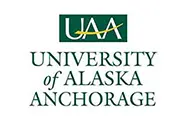 Location: Anchorage, ALASKA Accreditation: CAAHEP Program Type: Certification & Associate The Anchorage campus of the University of Alaska is the largest component of the statewide university system. Community colleges in Valdez, Soldatna, Kodiac and Mat-Su are affiliated with this campus as well. Approximately 20,000 students are enrolled at the University’s eight on-campus colleges. Medical assisting is a University major, and the application process is quite competitive. Classes begin in the fall semester, and the application deadline is May 15. The certificate curriculum in MA takes a year to complete at this medical assistant school while the Associate’s degree takes two years. Irrespective of the track MA students choose to pursue, they will need to complete a five-credit externship the summer after they have completed their academic class work in order to graduate. |
27) Portland Community College Ranking Score: 88.35 |
 Location: Portland, OREGON Accreditation: CAAHEP Program Type: Certification (1 Year) As Oregon’s premier community college, Portland Community College serves more than 80,000 students every year in Multnomah, Washington, Yamhill, Clackamas and Columbia counties. Classes are taught at four main campuses that are scattered throughout Portland. Additionally, the college maintains smaller facilities in the municipal area, which are dedicated to specialized training programs. The College offers a certificate in medical assisting, which should take one year to complete. The curriculum is based on the Patient-Centered Model Home theory. Students can begin their MA training in either the spring or the fall, and they will need to pass a criminal background check and a drug screening. Classes and skill labs will prepare students for both the clinical and administrative responsibilities they will be called upon to undertake once they begin their professional careers. All students will complete a clinical externship. |
28) Chippewa Valley Technical College Ranking Score: 87.28 |
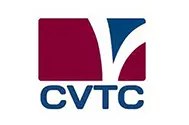 Location: Eau Claire, WISCONSIN Accreditation: CAAHEP Program Type: Diploma (1 Year) The largest campus in the Chippewa Valley Technical College system is in Eau Claire, Wisconsin. The College focuses on career-oriented training and offers technical diploma programs as well as associate degrees. Chippewa Valley Technical College is one of several medical assistant colleges that award an MA diploma alone. The MA program takes place at the campus in Eau Claire. Classes begin in August and January, and the curriculum takes most students one year to complete. Students will have the opportunity to practice clinical, laboratory and administrative skills they’ve learned through an externship at a local physician’s office. |
29) Altierus Career College Ranking Score: 87.17 |
 Location: Tampa, FLORIDA | Norcross, GEORGIA| Houston, TEXAS Accreditation: ABHES & CAAHEP Program Type: Diploma (10 Months) Altierus Career College specializes in career training and offers associate degrees and career diplomas in health care, trade, technical and business sectors. The College has made a commitment to keeping classes small so that students will have the opportunity to get personalized attention from their instructors. Campuses in Tampa, Florida; Norcross, Georgia; and Houston, Texas serve the needs of a diverse student population. All three Altierus Career College campuses offer MA education. The 10-month medical assistant diploma program eschews traditional classroom lectures in favor of iPad-powered learning modules with interactive diagrams, classroom polls and real-time feedback. Once coursework is complete, students will be placed in a local physician’s office for a 200-hour externship. Preparation and testing for either the Certified Medical Assistant Exam or the Registered Medical Assistant Exam are included as a part of the program. |
30) Rasmussen College Ranking Score: 86.06 |
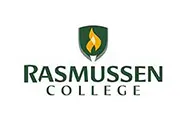 Location: Fort Myers, New Port Richey, Ocala & Tampa – FLORIDA | Aurora, Mokena, Rockford & Romeoville – ILLINOIS | Overland Park, KANSAS | Blaine, Bloomington, Brooklyn Park, Eagan, Lake Elmo, Mankato & Saint Cloud – MINNESOTA | Green Bay & Wausau – WISCONSIN Accreditation: ABHES Program Type: Diploma (12 Months) Rasmussen College is a for-profit educational system headquartered in Bloomington, Minnesota, that offers bachelor’s degrees, associate degrees, certificates and diplomas in career-focused areas. The school has 22 campuses throughout Minnesota, North Dakota, Florida, Wisconsin, Illinois and Kansas. The College’s Medical Assisting Diploma training takes 12 months to complete. The curriculum combines on-campus lectures and online learning opportunities. You will round out your coursework at the medical assisting college where you’re enrolled by completing a clinical rotation working under the supervision of a practicing physician in your area. Preparation and MA certification testing are included as part of the course. |
Useful Information for Aspiring Medical Assisting Students
Medical Assistant Education Information
Goal of a Medical Assisting Program
A medical assisting program is designed to provide you with the education you need to become an entry-level medical assistant capable of working in a variety of settings with different types of patients. The program will prepare you to sit for and pass the Certified Medical Assistant (CMA) examination or other national certification exams and give you a solid foundation for furthering your career later down the road if you choose to do so. You will learn to work under the supervision and direction of a doctor to provide outstanding and ethical patient care.
Types of Medical Assisting Degree Programs Available for Students
There are three different routes you can take to become a medical assistant in the US, and each offers its own unique set of benefits.
Certificate: In order to complete a certificate program as a medical assistant, you will need to take classes for anywhere from 8 to 12 months. The average cost associated with a medical assisting certificate is anywhere from $1,900 to $33,610 depending on the school you choose, the number of courses you will take, and the length of the practicum or externship. Courses will focus on both administrative and clinical tasks that will support doctors, nurses, and patients. You will learn computer skills and laboratory procedures as well as the fundamentals of the human body.
Diploma: A medical assisting diploma is pretty much similar to a certificate in terms of length and courses offered. Compared to a certificate, some diploma programs tend to last a bit longer, taking around 10 to 18 months and come with longer externships; some schools require 180 hours or more of hands-on clinical practice to graduate. A diploma program will cost anywhere from $2,940 to $41,300 and will teach you both front and back office skills that will help you in your support role.
Associate Degree: An associate degree takes longer and costs more than a certificate or diploma, but because the courses are more in-depth and focused, many of today’s employers prefer to hire MAs who have obtained associate degrees. It will take you roughly two years to complete an associate’s program at a cost of anywhere from 7,340 to $50,900 a year. The cost will vary depending on the type of school you attend, your state of residence, the number of courses included in the program, and more.
| Program Type | Program Length | Program Cost |
| Certificate | 8 to 12 Months | $2,200 to $20,500 |
| Diploma | 10 to 18 Months | $3,400 to $27,100 |
| Associate Degree | Two Years | $8,000 to $32,100 |
Typical Medical Assisting Program Admission Requirements
Admission requirements for medical assisting certificate, diploma, and associate degree programs are typically easy to meet. To apply, you must:
• Have a high school diploma or GED;
• Be at least 18 years old;
• Be able to pass a drug screen; and
• Pass a criminal background check.
*Please note when applying for admission into an associate degree program, you may need to meet minimum high school GPA requirements. These vary from school to school, but on average, your cumulative high school GPA should be a minimum of 2.5 on a 4.0 scale.
7 Advantages of Pursuing a CAAHEP or ABHES Accredited Medical Assistant Program
National Recognition: There are dozens of MA programs across the United States, but those that are accredited by the Commission on Accreditation of Allied Health Education Programs (CAAHEP) or the Accrediting Bureau of Health Education Schools (ABHES) are recognized at the national level for providing high-quality education.
Financial Aid Eligibility: Financial aid in the form of federal aid (associate degree only), loans and scholarships at both the state and national level is available. To be eligible, the program you are attending must be accredited.
Accomplished Faculty: Because accredited programs are considered more prestigious than their non-accredited counterparts, you will find that the faculty in CAAHEP or ABHES accredited MA programs have a broader range of experience and education.
Well-Rounded Curriculum: Programs that have earned ABHES or CAAHEP accreditation have proven that they offer all the courses necessary to help train entry-level medical assistants. This means that an accredited program with a variety of important courses will better prepare you for your future career.
CMA Certification Examination Eligibility: The American Association of Medical Assistants notes that only graduates of CAAHEP or ABHES accredited programs are eligible to sit for their nationally-recognized CMA certification exam. Though certification is not required by law, many employers require it, so choosing an accredited program will open more doors for you throughout your career.
Transferable Credits: Though medical assisting is a fantastic entry-level career choice that will help you get your foot in the healthcare industry’s door, for many students, such a program is merely a stepping stone. If you graduate from an accredited program and choose to pursue a baccalaureate (or higher) degree in the future, many of your courses will transfer to save you time and money.
Increased Ability to Find a Job After Graduation: These days, there is a huge focus on positive patient outcomes and outstanding care, which means that employers are becoming more selective during the hiring process. As a candidate who graduated an accredited program, you will appeal more to employers than candidates who attended non-accredited schools.
What are the 5 Best Medical Assistant Programs in the Nation?
1) Century College
2) Carrington College
3) Ivy Tech Community College
4) Davenport University
5) Pasadena City College
10 Factors You Must Consider While Choosing a Medical Assistant School
Is the Program Accredited by Either ABHES or CAHEEP?: By attending and graduating from an accredited medical assisting program, you will be eligible to sit for the CMA examination. This will make you a better contender for the most prestigious medical assisting jobs.
Does the School Offer the Specific Type of Medical Assisting Program (Certificate/Diploma/Associate Degree) of My Choice?: Not all schools offer all three types of programs, so be sure to consider this, as well. Though you can find employment with a certificate or diploma in medical assisting, an associate degree provides a much better framework for your future.
Is the Program On-Campus, Online or Hybrid?: Many people who choose to pursue medical assistant schooling have busy schedules. If you are in this position, consider an Online or Hybrid program (part on-campus and part online). This will allow you to complete coursework in your own time. If you are the one who is more comfortable with face to face learning, then an On-Campus program is the one for you.
What Is the Tuition Cost?: The costs associated with MA programs can vary a great deal, so it’s important to choose a program that fits your budget. When it comes to the overall cost of your education, be sure that you figure books, uniforms, exam fees, and more as well as the actual tuition cost. Tuition alone for medical assistant courses typically range from as little as $1,200 to $3,400 though can be as high as $32,100.
Will I Be Eligible for Financial Aid?: Financial aid eligibility varies from state to state, but there are some federal grants available, too. To find out what you may qualify for, you can fill out the FAFSA, or Free Application for Federal Student Aid. Both the federal and state government can use the information you provide to help you find the best financial aid for your needs. Financial aid is easier to attain for accredited programs, so this may factor into your decision. Some schools also offer scholarships. Getting any form of aid lowers the burden on your tuition so this is an important factor to consider while choosing a school.
What is the Student Faculty Ratio?: The lower the student-to-faculty ratio, the more one-on-one time you will get with your teachers and professors, and in most cases, the better the quality of the education overall. Professors and teachers who have fewer students can devote more attention to individuals, which can help you succeed in your program.
Does the Program Include Hands-On Training?: Most MA programs require practicums, clinicals, or externships that require you to put your skills to the test in a medical facility near you. The number of hours you will need to complete varies from one school to the next, so be sure to take this into consideration before making your decision.
What is the Certification Exam Pass Rate?: One of the best measurements of the overall quality of education in any given MA program is the school’s overall national certification exam pass rate. After all, these programs are designed to prepare you for this very exam and your career, so the higher the school’s pass rate, the more effective the education you will receive.
What is the On-Time Graduation Rate?: This number indicates the percentage of students who successfully complete the MA program on time, which is an important factor for choosing a school. Low on-time graduation percentages might indicate poor content delivery, and this makes it more difficult for students to understand the information being presented to them.
What is the Job Placement Rate?: Finally, looking at the school’s job placement rate – typically within three to six months of graduation – can help you decide which school is more likely to help you get a job after you graduate. Schools with career centers and mentors typically have higher job placement rates for MAs.
What Financial Aid Options are Available for Medical Assisting Students?
Though MA programs are relatively affordable when compared to other degrees, certificates, and diplomas in the medical field, they can still put a significant strain on your wallet. Fortunately, there are several things you can do to help you with these expenses.
Federal Aid: Federal aid is available to students enrolled in MA programs resulting in an associate degree. The Federal Pell Grant is by far the most popular, and your eligibility is based on your financial need and your ability to maintain certain academic standards. To apply for the Pell Grant (and other Federal grants), fill out and return the FAFSA, or Free Application for Federal Student Aid. The maximum Pell Grant award for the 2019-19 academic year was $6095, which can cover the entire cost of your education at many accredited schools.
Loans: Loans are yet another option for acquiring the funds you need to attend an MA program. Federal student loans, including the Stafford Loan, offer flexible and affordable repayment terms. These loans may be subsidized or unsubsidized, as well. You can find out whether you qualify for these loans by filling out the same FAFSA form used to apply for grants.
Scholarships: There are dozens of scholarships available to aspiring medical assistants, but most apply only to students who are pursuing associate degrees. Some of the most popular scholarships include the American Medical Technologists Scholarship (up to $500), the Maxine Williams Scholarship (up to $1000), and the ADEA Scholarship, which awards MAs interested in entering the dental field.
Earning A National Medical Assistant Certification in Highly Recommended – Here are the Options
Though certification is not required by law to work as a medical assistant, many employers require it, and some states may limit your scope of practice without it. There are five unique certifications you can obtain as a medical assistant.
Certified Medical Assistant (CMA) Exam: The Certified Medical Assistant (CMA) exam is offered by the American Association of Medical Assistants and is the most well-known of the MA credentials. To apply, you must be a graduate of a CAAHEP or ABHES accredited MA program. The fee is $125 for recent graduates, but non-recent graduates will pay $250 to take the exam unless they become members of the AAMA, which reduces the cost to $125. You will need to submit these fees at the time you apply. This credential will make you a stronger candidate for the most prestigious MA positions in your local area.
Registered Medical Assistant (RMA) Exam: The Registered Medical Assistant (RMA) designation and exam are offered by the American Medical Technologists. You can apply for the RMA exam online, and you will need to submit your $120 application fee at the time you do so. The RMA designation is also nationally recognized and makes you more valuable to potential employers.
National Certified Medical Assistant (NCMA) Exam: The National Certified Medical Assistant (NCMA) exam is offered by the National Center for Competency Testing. Though this credential is not as well-known as the CMA or RMA designations, it can still help you secure better-paying jobs in better working environments. Your eligibility is based on your education, military experience, or work experience. The exam fee of $90 must be remitted at the time you apply online.
Certified Medical Administrative Assistant (CMAA) Exam: The Certified Medical Administrative Assistant (CMAA) credential is ideal for MAs who want to focus their work on front-of-house administrative duties. It is offered through the National Healthcareer Association for a $117 fee. To apply, simply visit the website and add the exam to your virtual cart, then proceed to fill out the online application.
Certified Clinical Medical Assistant (CCMA) Exam: The National Healthcareer Association also offers the Certified Clinical Medical Assistant (CCMA) exam, which focuses more on back-of-house patient care than on administrative duties. This is ideal if you prefer to work directly with patients. The examination costs $155 and you can apply online by adding the specific exam to your virtual shopping cart.
Medical Assistant Career Information
Learning more about a medical assistant’s daily routine, work environment, salary, and job outlook can also help you make better and more informed decisions about your future.
What Does a Medical Assistant Do?
Medical assistants play an important support role in medical facilities of all types. They help doctors and nurses with various clinical and administrative duties, such as:
• Verifying patient information via interview;
• Accurately recording patient histories;
• Confirming patients’ reasons for visiting;
• Taking vital signs like blood pressure and temperature;
• Taking blood samples and specimens;
• Assisting with minor surgeries and physical exams;
• Performing routine lab tests;
• Writing patient care summaries and charting information;
• Answering telephones to schedule appointments and assist with billing inquiries;
• Keeping the workplace clean and organized;
• Ensuring medical supplies such as gloves, soaps, hand sanitizers, and more are well-stocked;
• Assisting doctors and nurses with positioning non-ambulatory patients; and
• Performing any other task within the MA’s scope of practice as directed by doctors or nurses.
Where Do Medical Assistants Work?
One of the best benefits of choosing medical assisting as an entry-level career is the wide selection of work environments from which to choose. Most MAs across the country are employed in the settings below.
Offices of Physicians: Doctor’s offices employ the highest percentage of MAs in the country. Many MAs prefer working in this setting due to its predictable hours and outstanding benefits for full-time workers. The pay is typically a bit higher in this setting, and because there are fewer employees overall, teamwork is a must.
Hospitals: MAs working in hospitals may work in numerous settings, including pediatrics, obstetrics, oncology, cardiology, emergency medicine, trauma, and many others. Hospitals employ the second highest number of medical assistants, as they play numerous support roles, particularly in terms of answering call lights for busy nurses and CNAs.
Outpatient Care Centers: Outpatient care centers such as clinics, laboratories, and urgent care centers also employ good number of MAs. Your duties will be both clinical and clerical in nature. Most outpatient care centers have longer hours than standard doctors’ offices, but very few provide care during the overnight hours or on holidays.
Offices of Chiropractors: MAs are always in demand in chiropractors’ offices. In this setting, your job will likely include making appointments, greeting patients, charting, and assisting the chiropractor when required. You may also assist with billing and invoicing depending on the size of the office.
| Industry | Employment | |
| Number | Percent | |
| Offices of Physicians | 373,620 | 57.81% |
| Hospitals | 91,740 | 14.19% |
| Outpatient Care Centers | 58,700 | 9.08% |
| Offices of Chiropractors | 25,390 | 3.93% |
| (Source: U.S. Bureau of Labor Statistics) | ||
Typical Work Environment
Your work environment as a medical assistant will vary a great deal based on your chosen employer. Some settings, such as doctors’ and chiropractors’ offices, provide a very calm and relatively low-stress atmosphere. On the other hand, if you work in an emergency room or trauma center, the environment can quickly shift from calm to fast-paced and high-stress. You will work alongside other medical assistants, nursing assistants, nurses, doctors, and other health professionals on a day-to-day basis.
Typical Working Hours
Your work hours as a medical assistant will also vary depending on your employer. For example, if you work for a doctor or chiropractor in a private practice, you will work mainly daytime hours and no overnights or holidays. On the other hand, if you choose to work in an emergency setting, you may be required to work nights, weekends, and holidays regularly.
What is the Scope of Practice of a Medical Assistant?
There are several things that can influence a medical assistant’s overall scope of practice. Though certification is not required by law, it may influence your scope of practice in your state. For specifics, be sure to check with your state’s medical board. MAs can provide administrative support, and they are also allowed to work directly with patients under the supervision of a physician. This means that you can take vital signs or even administer medications as ordered by a doctor, but because of your limited scope of practice, you cannot diagnose or treat patients, and you cannot advise patients about their illnesses or conditions.
Average Medical Assistant Salary
The average salary of a medical assistant varies a great deal based on things like location, experience, and employer. On average, MAs across the US earn $33,580 a year, or roughly $16.15 an hour. Those who have just graduated from MA programs will earn significantly less, and those who have many years of experience will earn more. It may also help to note that MAs who work overnights and holidays tend to earn more due to shift differentials. Finally, high-stress work environments like trauma centers and emergency rooms tend to offer higher salaries than their low-stress counterparts.
| Hourly | $16.15 |
| Monthly | $2,800 |
| Annual | $33,580 |
| (Source: U.S. Bureau of Labor Statistics) | |
Projected Salary Growth
As the cost of living continues to increase, medical assistants can expect nominal salary growth between the years of 2018 and 2022. The average annual increase for each of these years will range from less than $500 to almost $900. Over the course of the next five years, MA salaries are expected to climb by 10.30%. In 2018, the average annual salary is $34,370, but by 2022, it will climb to $37,040.
| Year | Salary | Growth | |
| Number | % | ||
| 2018 | $34,370 | $790 | 2.35% |
| 2019 | $35,010 | $640 | 1.86% |
| 2020 | $35,460 | $450 | 1.29% |
| 2021 | $36,340 | $880 | 2.48% |
| 2022 | $37,040 | $700 | 1.93% |
| Overall Growth in Next Five Years | $3,460 | 10.30% | |
| (Source: Medicalassistantadvice.com) | |||
10-Year Job Outlook For Medical Assistants
The overall job outlook for medical assistants over the next decade is very strong. A large portion of the population is aging, and when this is combined with more widespread access to healthcare, new technologies, and medications designed to promote better quality of life, the demand for highly qualified professionals will continue to rise dramatically.
Between the years of 2016 and 2026, some 184,000 new medical assistant jobs will open in the US. This represents an overall 29% growth in just 10 years – much higher than the average growth for all professions. Many of these MAs will work in clinics, outpatient centers, and even nursing homes providing support for the growing number of doctors and nurses across the country.
| Number of Medical Assistants | 10 Year New Job Growth Projection (2016-2026) | ||
| 2016 | 2026 | Number | % |
| 634,400 | 818,400 | 184,000 | 29.00% |
| (Source: U.S. Bureau of Labor Statistics) | |||
Job Openings Projection
The medical assisting profession, like many others in the healthcare industry, will continue to grow rapidly year over year. In fact, almost 95,000 new jobs a year will be available to aspiring MAs. The majority will be replacement jobs for those who are retiring or furthering their careers, while a smaller percentage will be brand new positions.
| New | Replacement | Annual Job Openings (New + Replacement) |
| 18,400 | 76,500 | 94,900 |
| (Source: U.S. Bureau of Labor Statistics) | ||
Important Medical Assisting Related Resources for Students
U.S. Bureau of Labor Statistics: The United States Bureau of Labor Statistics provides valuable information about careers across the country, including MAs. As an aspiring MA, you can view pertinent information such as the highest salaries in the country by metro area, the areas that employ the highest number of MAs, and much more. This information can help you decide whether this is the right career choice for you.
Accrediting Bureau of Health Education Schools (ABHES): The Accrediting Bureau of Health Education Schools is a nonprofit organization that specializes in promoting quality education and training in the healthcare industry. The ABHES offers lists of accredited schools in your area, important publications, and various other resources for students who may be considering healthcare careers.
Commission on Accreditation of Allied Health Education Programs (CAAHEP): The Commission on Accreditation of Allied Health Education Programs, or CAAHEP, is an accrediting body that strives to set high standards for health-related education. It is one of only two organizations in the country that accredit MA programs, and you can find plenty of resources, news, and more at the CAAHEP website.
American Association of Medical Assistants (AAMA): The American Association of Medical Assistants is an association that is dedicated to supporting MAs and the roles they play within the healthcare industry. It offers an exclusive paid membership that grants you access to various benefits, including networking events, volunteering opportunities, and more. As mentioned above, they also offer the most widely recognized certified medical assistant (CMA) credential – each day they respond to more than 100 enquiries by employers seeking verification.
American Medical Technologists (AMT): American Medical Technologists is a nonprofit organization that provides credentialing for MAs across the United States. Their rigorous examination sets standards for medical educators, and employers prefer to hire individuals who have their coveted Registered Medical Assistant credential. You can also find continuing education, state societies, and more through the AMT website.
National Healthcareer Association (NHA): The National Healthcareer Association is another great organization that offers plenty of information for aspiring and experienced MAs alike. Aside from their CCMA and CMAA certifications, the group also offers a unique job board, a job blog focused on medical assisting, and plenty of professional development resources.
All Rights Reserved.
About us | Contact us | Terms of Use | Privacy Policy | Resources
